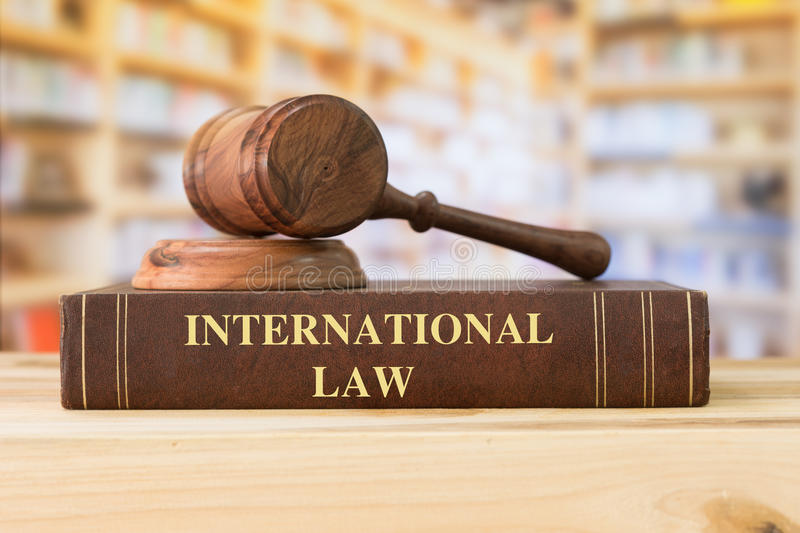Humanitarian Law, Law of war and Law of Armed Conflicts is a department of law which has the same meanings and different from human rights law but has a relation with it.
International Humanitarian Law is an international agreement or customs which aims to solve humanitarian problems of international or not international qualities, come up armed conflicts and also which is explained by International Humanitarian Law…
International Humanitarian Law is a big department of International Public Law… In times of armed conflict, it consists of rules that tries to protect « bellicist » and « non – party », and limits to war methods and tools.
GeneveandHague
There are two departments of International Humanitarian Law that is also known as law of armed conflicts and law of arms. These are :
- “Law of Geneve” is consisted to protect non – combanant or out of war military personnel and civilians who didn’t involve the war actively.
- “Law of Hague” determines the rights and obligations of combanants who are in the management of military operations, alongside limits their methods of damaging to the enemy.
Who fights againist whom?
International armed conflict refers a war at least between two states’ armed conflicts (It should be noted that national independency struggles are classified as an international armed conflict).
An armed conflict which isn’t international refers that a war between regular armed forces and identifiable armed groups in the territory of a stateor a war between armed conflicts who fight. A conflict can be determined as a non – international armed conflict, has to reach a certain severity and it has to lead for some time.
İç karışıklıklar şiddet eylemlerinden kaynaklanan, yine de silahlı bir çatışmayı temsil etmeyen iç düzenin ciddi şekilde bozulması olarak tanımlanır Domestic disturbances are defined that result from acts of violence, but it does not represent an armed conflict, and they are a serious deterioration of the interior layout (for example; riots, struggle aganist authorities and opposing groups).
Grotius andLaw of Nation
Law of Nations, in today’s terms ; have the same meaning with « Public International Law » or « International Law ».
It is a set of rules which governs between the states and between the states and other members of international community relations.
A jurist and diplomat, Grotius is the founder of the law of nations.After the reform in Europe which divided Christian churches, Grotius revealed that a law is no longer an expression of divine justice, but it is a product of human reason, and it doesn’t come from the action, but it borns from the action.It is concluded that from here, it need to find a principle for international relations, so International Law provided this principle.In his book De jure belli ac pacis, Grotius sorted the rules which has been among the law of war’s the most solid foundations.
Terminology
International Humanitarian Law, Law of Armed Conflict and the Law of War have equivalent terms.International organizations, universities and even states prefer to use International Humanitarian Law term, and the other two terms are used commonly by armed forces.
The basic principles of International Humanitarian Law
Before the first Geneve Contract, 1864, has been accepted and developped, lawyers and philosophers as Grotius, were interested in regulating conflicts.
In 18th century, Jean – Jack Rousseau had a great contribution about development of war between the states with formulated following policy: “ War doesn’t have a relation between people, it is a relation with a state.Here, people aren’t as a human or citizen, a soldier ; they are just enemies as a coincidence (…). The aim of war, is to undermine the enemy state, soi t is legitimate that to kill other part if they are armed, but when they take away their weapons and resign, their position as a representive of enemy end, and again they are humans again ; it is not legitimate to take their lives.”
In 1899, Fyodor Martens revealed this principle for the situations that International Humanitarian Law didn’t cover: “ (…) civilians and soldiers, the board of customs and traditions, principles of humanity and from the dictates of the public conscience of the principles of international law stemming they are under the protection and authority.”
Known as Martens principles above, Article 1977, paragraph 2 of Article 1 of Protocol ı.addition is included in the previously-established customary law was taken into consideration as part of the standard.
1864 Geneva Convention has createdfoundations of contemporary International Humanitarian Law.Here are the main qualities of this Agreement:
- They are written universal rules for protecting victims of conflicts.
- Wit hits multilateral structure, open to all states.
- Without discrimination to the wounded and sick military personnel obliges care provision.
Started with 1864, Geneva Contract, modern International Humanitarian Law has developped gradually.
All of this stage mostly to themselves strongly in the time required after certain events, developments in weapons and new types of conflicts arising from the ever-increasing humanitarian aid has emerged to meet the requirements:
1864Geneve Contract for improve the situation of the wounded person who belongs to armed forces on land
1868 St. Petersburg Declaration (the use of certain projectiles
prohibitionsin war)
1899Hague Conventions, and customary laws of land warfare units to comply with the rules and of the principles of the Geneva Convention of 1864 to adapt to the naval war 1906Regulation and development of the 1864 Geneva Convention
1907Regulation of the Hague Convention of 1899 and the new contract
Adoption
1925Geneva Protocol; prohibition of the use of asphyxia, and other poisonous gases and bacteriological methods of warfare
1929 Two Geneva Contracts:
- Regulation and development of the Geneva Convention 1906
- Geneva Convention on the treatment of prisoners of war (new)
1949 The four Geneva Contracts:
I- improve the situation of the wounded person who belongs to armed forces on land
II- improve the situation of the wounded person, sick and shipwrecked who belongs to armed forces at sea
III- The treatment of prisoners of war
IV- The protection of civilians during war (new)
1954 Lahey Sözleşmesi, silahlı çatışmadurumunda kültürel varlıkların
Korunması
1972To prohibite and destruction of developing of Bacterial (biological) and toxic weapons, production and stockpilling contract
1977 two Protocols additional to theFour Geneva Convention: international armed conflict (Protocol I) and non-international armed conflicts (Second Protocol) to strengthen the protection of victims
1980Agreement on causing serious injury and having indiscriminate effects
prohibition or limiting of the use of certain conventional weapons
(“CCW”).
Including these: • Protocol concerning unidentified part (I) • prohibition and restriction Of mines, booby traps and other devices for the use of the Protocol (II) • For causing a fire ban and restrictions on the use of weapons Protocol (III)
1993Contract concerning the prohibition and destructionof chemical weapons development, production, stockpiling
1995 Protocol on blinding laser weapons [1980 Agreement IV. Protocol (new)]
1996prohibition and restriction Of mines, booby traps and other devices for the use of the Protocol [1980 Agreement II. Protocol (restated)]
1997Convention concerning the prohibition and destructionof the use of antipersonnel mines, stockpiling, production and transfer
1998 Rome Statute of the International Criminal Court
1999Additional Protocol to the Convention on Cultural Property 1954
2000 The Convention on Children’s Rights of Children in Armed Conflict, including
Towards the Additional Protocol
2001 CCW Amendments in Article 1
1949 Geneva Conventions and their Additional Protocols of 1977, approximately 600 materials comprise of International Humanitarian Law is the main documentation.
The purpose of International Humanitarian Law, to limit by providing protection and assistanceof the victims as much as possiblewho sufferedfrom war.
Therefore, international humanitarian law, takes the legality of the use of force, regardless of the reasons or the fact that a conflict.Regulates aspects of the conflict, carrying only humanitarian concerns.
International Humanitarian Law, is known asthe law during the war (jus in bello).The provisions of humanitarian law, warring parties to the conflict to cause or causes of these parties is based applies regardless of whether it is justified.
In case of international armed conflict violated the United Nations Charter, which state that it is often difficult to determine.
The application of international humanitarian law doesn’t include clearly condemned the guilty party.Because each of the parties against each other, the victims of the conflict itself clearly would argue that the charges of International Humanitarian Law
may create conflict in the implementation and application can paralyze.
In addition, international humanitarian law, aims to protect their basic rightsregardless of which party they belong to the victims of war. Therefore, during the war of law (jus in bello), the right to resort to force (jus ad bellum) or prevent the war from the law (jus contra bellum) must be independent.
In brief ; Humanitarian law, is not concerned with the use of armed force whether justified or legitimate.
who will decidewhether or notuse of forcelegitimate?
Right to resort to force in international law and principles of the Charter of the United Nations is needed. Which staterefers to the force, which should not be violated “humanitarian law” rules.This is the field of application of the law of armed conflict, the right to remove or right of recourse to force is independent of ownership.In any war where there is armed conflict “humanitarian law” will apply.
In a sense, the armed conflict “legitimacy” question and warring states which are the matter of death, human rights violations, people of mass destruction, blood and tears, the suffering it a little bit in order to reduce and especially for the law “protection of civilians”.
In Military conflicts,the law of war, rules of humanitarian law, violators “perpetrators” whether soldiers or civil matter, rules of international law for grave violations are performed for a “war crime” is guilty and as war criminals will be punished.

